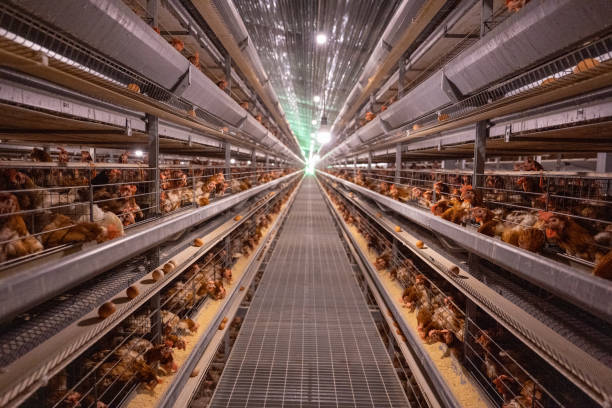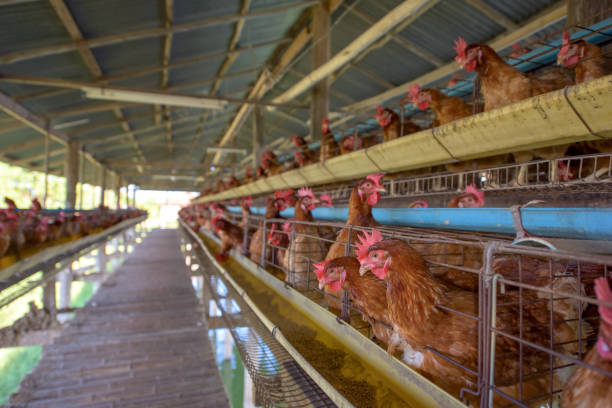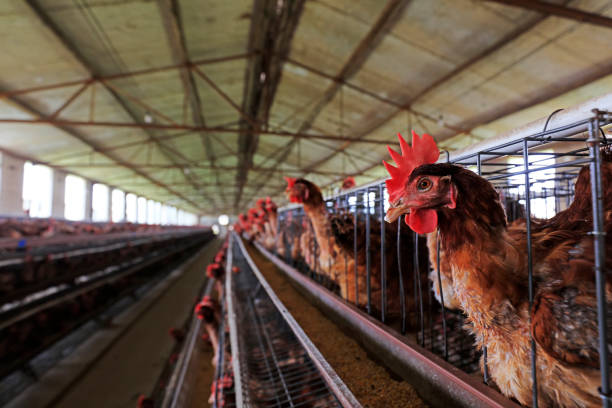
Starting a Chicken Farm Business: A Comprehensive Guide for African Entrepreneurs
Starting a Chicken Farm Business: A Comprehensive Guide for African Entrepreneurs
Africa’s agricultural landscape is ripe with opportunity, and poultry farming, particularly chicken farming, stands out as a promising venture for aspiring entrepreneurs. The demand for chicken meat and eggs is steadily increasing across the continent, driven by factors like population growth, urbanization, and changing dietary preferences. However, successfully launching and managing a chicken farm business requires careful planning, diligent execution, and a thorough understanding of the market dynamics. This comprehensive guide provides African entrepreneurs with the knowledge and insights needed to embark on this exciting journey.
Understanding the African Poultry Market
Before diving into the practical aspects of starting a chicken farm, it’s crucial to grasp the nuances of the African poultry market. This involves analyzing the demand for chicken products, identifying your target market, and understanding the competitive landscape.
Demand and Market Trends
The demand for chicken meat and eggs in Africa is fueled by several factors:
Population Growth: Africa has one of the fastest-growing populations in the world, creating a larger consumer base for food products, including chicken.
Urbanization: As more people migrate to urban areas, their lifestyles and dietary habits change. Chicken is often seen as a convenient and affordable source of protein.
Rising Income Levels: Increased income levels enable more consumers to afford chicken products, further driving demand.
Health Consciousness: Consumers are increasingly aware of the health benefits of chicken as a lean source of protein, making it a preferred choice over red meat in some cases.
Identifying Your Target Market
Defining your target market is essential for tailoring your production and marketing strategies. Consider the following factors:
Geographic Location: Will you focus on supplying chicken products to local markets, urban centers, or even export to neighboring countries?
Consumer Segment: Will you target individual consumers, restaurants, hotels, supermarkets, or other businesses?
Product Type: Will you specialize in producing broiler chickens for meat, layer chickens for eggs, or both?
Pricing Strategy: Will you compete on price, quality, or other differentiating factors?
Analyzing the Competition
Understanding your competitors is critical for developing a competitive advantage. Consider the following:
Existing Poultry Farms: Identify the major players in the market, their production capacity, and their market share.
Small-Scale Farmers: Assess the role of small-scale farmers in supplying chicken products to the market.
Imports: Determine the volume and source of imported chicken products and their impact on local prices.
Market Gaps: Identify any unmet demand or underserved segments in the market that you can target.
Developing a Business Plan
A well-structured business plan serves as a roadmap for your chicken farm business. It outlines your goals, strategies, and financial projections, helping you to secure funding and manage your operations effectively.
Executive Summary
This section provides a brief overview of your business, including your mission, vision, and key objectives.
Company Description
Describe your chicken farm business in detail, including its legal structure, ownership, location, and management team.
Market Analysis
Summarize your research on the African poultry market, including demand trends, target market, competition, and market gaps.
Products and Services
Specify the types of chicken products you will produce (broilers, layers, or both) and any related services you will offer, such as processing, packaging, or delivery.
Marketing and Sales Strategy
Explain how you will reach your target market, promote your products, and generate sales. Consider using a combination of online and offline marketing channels.
Operations Plan
Outline your production process, including sourcing chicks, feeding, housing, health management, and waste disposal. If you want to improve feeding method and manure disposal efficiency, using poultry farming equipment may be a good choice.
Management Team
Highlight the experience and expertise of your management team and their roles in the business.
Financial Projections
Develop realistic financial projections, including start-up costs, operating expenses, revenue forecasts, and profitability analysis.
Funding Request
If you are seeking funding, clearly state the amount of funding required, how it will be used, and your repayment plan.
Choosing the Right Chicken Breed
Selecting the appropriate chicken breed is crucial for maximizing productivity and profitability. The choice depends on your production goals, market demand, and environmental conditions.
Broiler Breeds
Broiler breeds are specifically bred for meat production, growing rapidly and reaching market weight in a short period. Popular broiler breeds in Africa include:
Cobb 500: Known for its fast growth rate and high meat yield.
Ross 308: Another popular choice, offering excellent feed conversion ratio and disease resistance.
Arbor Acres: A versatile breed that performs well in various climates.
Layer Breeds
Layer breeds are bred for egg production, laying a large number of eggs over an extended period. Popular layer breeds in Africa include:
Hy-Line Brown: A prolific egg layer with excellent egg quality.
Lohmann Brown: Renowned for its high egg production and adaptability.
ISA Brown: A popular choice for small-scale farmers, known for its robustness and egg-laying efficiency.
When selecting a breed, consider factors such as growth rate, feed conversion ratio, egg production, disease resistance, and adaptability to local conditions.
Setting Up Your Chicken Farm
The location and design of your chicken farm are crucial for ensuring the well-being of your birds, minimizing disease risks, and optimizing production efficiency.
Location
Choose a location that is accessible, has reliable water and electricity supply, and is away from residential areas. Consider the following factors:
Proximity to Market: Locate your farm near your target market to minimize transportation costs.

Availability of Resources: Ensure access to reliable water, electricity, and feed sources.
Environmental Considerations: Avoid areas prone to flooding, pollution, or extreme weather conditions.
Biosecurity: Maintain a buffer zone between your farm and other poultry farms to reduce the risk of disease transmission.
Housing
Provide adequate housing for your chickens to protect them from the elements, predators, and diseases. Consider the following options:
Deep Litter System: Chickens are raised on a bed of litter material, such as wood shavings or rice husks.
Slatted Floor System: Chickens are raised on raised platforms with slats, allowing manure to fall through.
Cage System: Chickens are housed in individual cages or group cages, often used for layer chickens.
The choice of housing system depends on your budget, production goals, and management preferences.
Equipment

Invest in essential poultry farming equipment to automate tasks, improve efficiency, and reduce labor costs. Consider the following:
Feeders and Drinkers: Provide adequate feeding and watering equipment to ensure that all chickens have access to food and water.
Heating and Ventilation: Install heating and ventilation systems to maintain optimal temperature and air quality in the poultry house.
Lighting: Provide adequate lighting to stimulate egg production in layer chickens.
Egg Collection System: Invest in an egg collection system to automate the egg collection process and reduce breakage.
Waste Management System: Implement a waste management system to dispose of manure and other waste materials properly.
Feeding and Nutrition
Proper feeding and nutrition are crucial for the growth, health, and productivity of your chickens. Provide a balanced diet that meets their specific nutritional requirements.
Chick Starter Feed
Provide a high-protein chick starter feed to young chicks to support their rapid growth and development.
Grower Feed
Switch to a grower feed when the chicks reach a certain age or weight, providing a lower protein content to promote bone development and prevent rapid weight gain.
Finisher Feed
Provide a finisher feed to broiler chickens in the final weeks before slaughter to enhance meat quality and fat deposition.
Layer Feed
Provide a layer feed to laying hens that is rich in calcium and other nutrients to support egg production and maintain shell quality.
Supplementation
Supplement your chickens’ diet with vitamins, minerals, and other essential nutrients to prevent deficiencies and promote overall health.
Health Management
Maintaining the health of your chickens is essential for preventing diseases, reducing mortality rates, and maximizing productivity.
Vaccination
Implement a vaccination program to protect your chickens against common poultry diseases, such as Newcastle disease, infectious bronchitis, and fowl pox.
Biosecurity
Implement strict biosecurity measures to prevent the introduction and spread of diseases on your farm. This includes controlling access to the farm, disinfecting equipment and vehicles, and practicing proper hygiene.
Disease Monitoring

Regularly monitor your chickens for signs of illness, such as reduced appetite, lethargy, coughing, sneezing, or diarrhea.
Veterinary Care
Establish a relationship with a qualified veterinarian to provide regular health checkups, diagnose and treat diseases, and advise on preventive health measures.
Marketing and Sales
Effectively marketing and selling your chicken products is crucial for generating revenue and building a sustainable business.
Branding
Develop a strong brand identity for your chicken farm, including a name, logo, and packaging that reflect your values and quality standards.
Pricing
Set competitive prices for your chicken products based on production costs, market demand, and competitor pricing.
Distribution
Establish reliable distribution channels to reach your target market, such as direct sales, wholesale, retail, or online platforms.
Promotion
Promote your chicken products through various marketing channels, such as advertising, social media, public relations, and participation in trade shows and events.
Customer Service
Provide excellent customer service to build loyalty and encourage repeat business.
Financial Management
Sound financial management is essential for the long-term sustainability of your chicken farm business.
Record Keeping
Maintain accurate records of all income and expenses, including sales, purchases, labor costs, and utilities.
Budgeting
Develop a budget to project your income and expenses and track your financial performance.
Cost Control
Implement cost control measures to minimize expenses and maximize profitability.
Financial Analysis
Regularly analyze your financial statements to identify areas for improvement and make informed business decisions.
Access to Finance
Explore different financing options to fund your chicken farm business, such as loans, grants, or venture capital.
Sustainability and Ethical Considerations
In today’s world, sustainability and ethical considerations are becoming increasingly important for businesses.
Environmental Sustainability
Implement environmentally sustainable practices on your chicken farm, such as reducing water and energy consumption, managing waste properly, and promoting biodiversity.
Animal Welfare
Ensure the well-being of your chickens by providing them with adequate space, food, water, and a comfortable environment.
Social Responsibility
Contribute to the well-being of your community by creating jobs, supporting local businesses, and promoting sustainable agricultural practices.
Conclusion
Starting a chicken farm business in Africa can be a rewarding and profitable venture. By understanding the market dynamics, developing a solid business plan, choosing the right chicken breed, setting up your farm efficiently, implementing sound management practices, and prioritizing sustainability and ethical considerations, African entrepreneurs can successfully navigate the challenges and capitalize on the opportunities in the poultry industry. With dedication, hard work, and a commitment to excellence, you can build a thriving chicken farm business that contributes to the economic development of your community and the continent as a whole.
